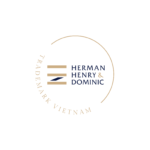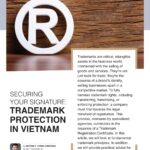To read or download the article, please click the following link
The Madrid System offers a streamlined process for trademark owners to secure protection in multiple countries through a single application, making it a highly efficient option for businesses operating internationally. Vietnam, as a member of both the Madrid Agreement and the Madrid Protocol, allows Vietnamese trademark holders to leverage this system effectively.
Overview of the Madrid System
The Madrid System is governed by two treaties: the Madrid Agreement (1891) and the Madrid Protocol (1989). These treaties enable the international registration of trademarks, which is managed by the International Bureau of the World Intellectual Property Organization (WIPO) based in Geneva. Through a single application and fee payment, applicants can seek protection in multiple member countries, simplifying the process significantly compared to filing separate national applications.
Procedure for Vietnamese Applicants
Vietnamese applicants begin the process by filing a trademark application with the National Office of Intellectual Property (NOIP) of Vietnam. This national application serves as the basis for the international application. The key steps involved are as follows:
- Initial National Application: The applicant files a trademark application with the NOIP.
- Submission to WIPO: Once the NOIP processes the application, it is forwarded to WIPO. The international application must include the applicant’s status, a sample of the trademark, and a list of goods and services covered by the mark.
- Formal Examination by WIPO: WIPO examines the application for compliance with formal requirements. If all criteria are met, WIPO registers the trademark in the International Register and publishes it in the WIPO Gazette of International Marks.
- Notification to Designated Countries: WIPO notifies each designated member country where protection is sought. Each country’s intellectual property office then examines the trademark according to its national laws within a specified period, typically 12 to 18 months.
- Decision on Protection: The designated countries decide whether to grant protection to the trademark. If a country does not issue a refusal within the examination period, the trademark is automatically protected in that country.
Advantages of the Madrid System
The Madrid System offers several benefits for Vietnamese businesses:
- Cost Efficiency: Filing a single application and paying one set of fees reduces costs compared to filing multiple national applications.
- Simplified Management: Trademark management, including renewals and changes, can be done centrally through WIPO, making it easier to maintain and update trademark portfolios.
- Extended Protection: The system provides a mechanism for extending trademark protection internationally, which is crucial for businesses operating in multiple markets.
Challenges and Considerations
While the Madrid System simplifies the international registration process, applicants should be aware of potential challenges:
- National Examination: Each designated country conducts its examination, and the criteria for protection may vary. Therefore, a trademark approved in one country may be refused in another.
- Compliance with Local Laws: Applicants must ensure that their trademarks comply with the local laws and regulations of each designated country to avoid refusals.
- Renewal and Maintenance: International registrations are valid for ten years and can be renewed directly with WIPO. However, maintaining protection requires timely renewals and adherence to each country’s specific requirements.
Conclusion
The Madrid System provides a robust framework for Vietnamese businesses to protect their trademarks internationally. By streamlining the application process and reducing associated costs, it facilitates global brand expansion and intellectual property protection. Businesses considering international trademark registration should take advantage of the Madrid System to safeguard their trademarks in multiple jurisdictions efficiently.
For more detailed guidance and support on the international registration of trademarks through the Madrid System, businesses are encouraged to consult with legal experts specializing in intellectual property law.







